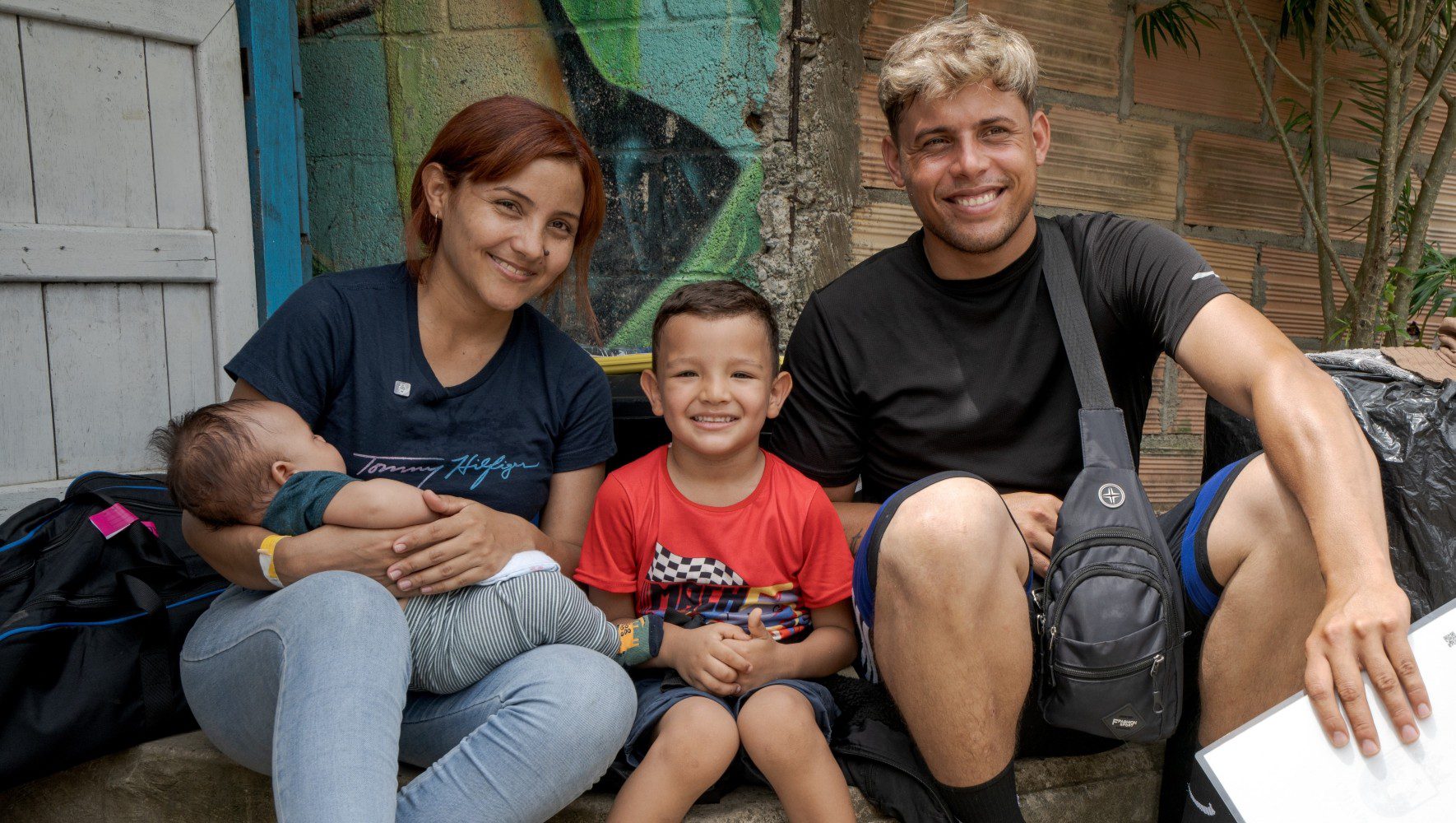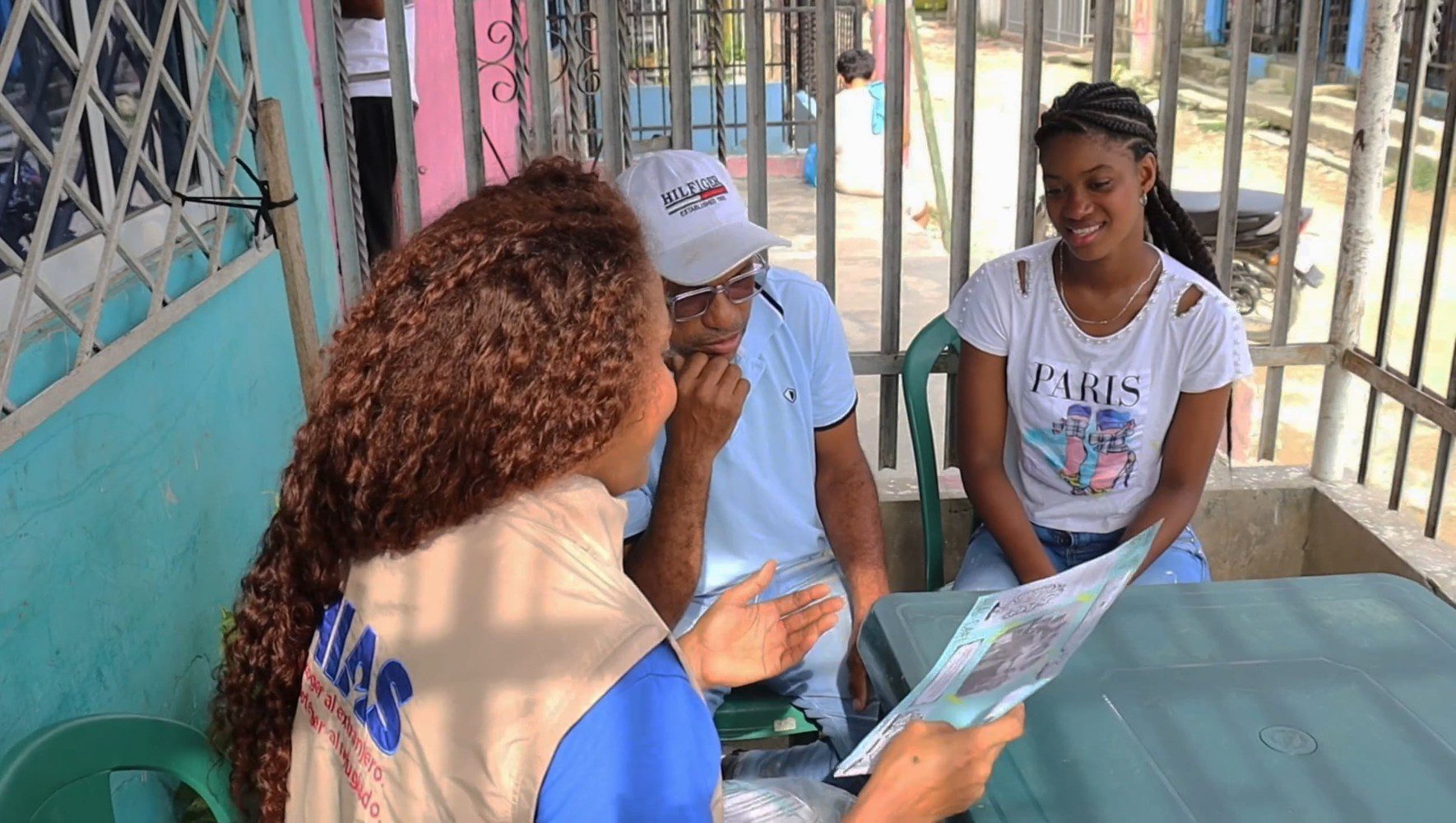Colombian Refugees and the Effects of Violence Throughout Latin America
By Kyle Kissick, HIAS Intern
Jul 11, 2013
HIAS Latin America helps refugees who have fled Colombia’s decades-old civil war and prolonged internal violence. Since the beginning of the war, more than four million Colombians have been displaced within the country and as many as 750,000 have fled the country as refugees. HIAS’ offices in Ecuador, Panama, and Venezuela provide crucial psychological and therapeutic services to Colombian refugees that would otherwise have no access to these types of services.
I had the privilege of learning much more about those affected by the violence while attending an event entitled Discussion on Women, War, and Peacebuilding in Colombia sponsored by the United States Institute of Peace (USIP). The event began with a screening of The War We Are Living, part of the 'Women, War, and Peace' series produced for PBS. The film documents the struggle of two Afro-Colombian women activists to protect their community’s right to continue mining the mountains of the Cauca Department of southwestern Colombia. As a result of their activism, Clemencia Carabali and Francia Marquez received numerous threats against their families and themselves from the paramilitary group known as Águilas Negras, La Nueva Generación. The film highlighted the fact that although the civil war is officially over, and former President Alvaro Uribe successfully demobilized many paramilitary groups, violence continues to this day, especially for many living in the countryside.
A panel of distinguished speakers at the event highlighted the unique situation for women and discussed why their needs should be more carefully considered. Virginia Bouvier of USIP spoke about UN Security Council Resolution 1325, which calls for the inclusion of a gendered perspective in repatriation and resettlement, rehabilitation, reintegration, and post-conflict reconstruction. She discussed the normative framework the international community is developing for the inclusion of women in peace talks, noting the dearth of participation by women on any level to date. She also noted that including a gendered perspective in upcoming negotiations with FARC is critical to address the widespread sexual and domestic violence in Colombia.
Lorena Morales Vidal of the Asociación Colectivo Mujeres al Derecho discussed the organization’s work defending the property rights of Colombian women. She explained that for many women, understanding their rights to property is critical to avoid being dispossessed of their sole means of survival. While the Colombian government has occasionally granted property to collective groups of women, many have been unable to defend their property from the violence and legal tricks used to take it from them. The Asociación Colectivo Mujeres al Derecho also works on the international level to address the lack of representation of women’s interests in Colombian civil society and political life.
While it is true that armed conflict in Colombia, especially in urban areas, has decreased significantly in recent years, this event highlighted the reality that for many the war lives on. Life continues to be extremely difficult for Colombians that are displaced or have fled to neighboring countries. HIAS’ ongoing involvement in Latin America is more relevant than ever, and is one part of the ongoing international efforts to support Colombians as they begin to heal the wounds left by decades of violence.



